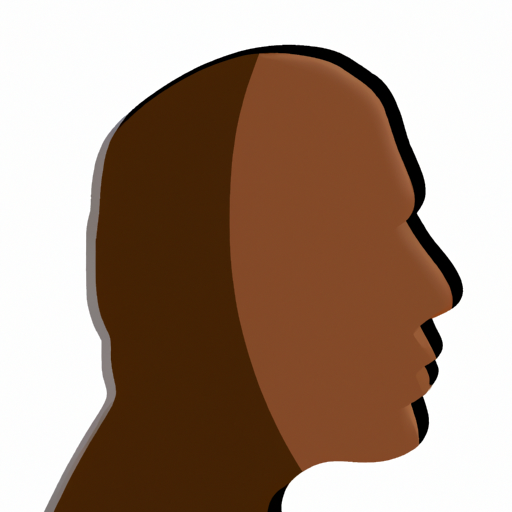Darkening of the face is something that many people experience, but don’t necessarily talk about. It’s a real issue, and it can be frustrating to try and address. The causes and solutions aren’t always simple or straightforward, but understanding them can help you tackle the problem.
At its simplest, darkening of the face is an alteration in the color of your skin due to a variety of factors. It can show up in small patches or over larger areas, and the results are often less than desirable. In extreme cases, it can give your skin an uneven look that’s hard to completely cover up.
The causes vary, as do potential treatments. Knowing why it happens is key to getting to the bottom of the problem, so let’s take a closer look at what darkening of the face really is and some of the possible causes.
Causes of Darker Skin on Face
Darkening of the face can be caused by a number of things and can have you feeling like you’re not yourself. So what are the causes of darker skin on your face? Let’s take a look.
The first, and perhaps most obvious cause, of darker skin is sun exposure. If you’re spending lots of time outside without protecting your face with sunscreen, hats, and other protective gear, then you’re putting yourself at risk for suntan lines, sunburns, and dark spots. Taking proactive steps to protect your face from the damaging rays of the sun is essential to maintaining a healthy complexion.

Hormonal changes can also lead to darker skin on the face. During puberty, when hormones are surging and changing, it’s natural for some people to experience changes in skin tone. In pregnant women, higher estrogen levels can lead to an increase in melanin production, resulting in darker spots or patches on the face. If you’re experiencing this issue due to hormones, then consulting with a doctor may be the best course of action for finding solutions.
Genetics can also play a part in darker skin on the face. If you’ve seen your parents and relatives with similar qualities in their skin, then it may be a sign that it’s just something that runs in the family. There’s nothing we can do about genetics, so it’s important to keep up with a daily skincare routine to maintain a healthy complexion.
Finally, certain skincare products may cause darker areas on the face. Ingredients like retinoids, hydroquinone, and alpha-hydroxy acids can be harsh on sensitive skin, leading to inflammation, dryness, and discoloration. Be sure to carefully read the ingredients list before using any products and always wear sunscreen during the day.
How to Treat Darker Skin on Your Face
If your face has been looking a bit more colorful than usual, you’re not alone. Darkening of the face is a common issue, and there are a few potential causes – from sun exposure to skincare products.
So, how do ya get rid of it? Here are some tips for treating darker skin on your face.
Sun Protection
Upping your SPF can go a long way when trying to lighten dark spots and hyperpigmentation. Whether that’s investing in a good sunscreen or simply wearing a hat when spending time outdoors: keeping your skin away from the sun will help minimize and prevent further discoloration.
Use Gentle Cleansers
Sometimes darker skin can be caused by harsh soaps and cleansers, so switch up your routine to something more gentle. Opt for products containing natural ingredients such as honey, aloe vera, and oatmeal to soothe and hydrate your skin.
Exfoliate Regularly
To give your fade game an extra boost, add regular exfoliation into your skincare regimen. Whether that’s using chemical exfoliants such as AHAs once a week or opting for more physical exfoliators like sugar scrubs. It’ll help slough off any built-up dead skin cells and give your complexion a nice refresh.
Hydrate and Moisturize
Keeping your skin hydrated is key. Make sure you’re drinking enough water, and use moisturizers (like ones containing ceramides and hyaluronic acid) to give your complexion some extra nourishment.
These treatments won’t work overnight but they will help lighten those pesky patches of darkness over time – just stick to ’em!
Conclusion
Well folks, it’s time to wrap this up. We’ve discussed the basics of what causes darkening of the face and put together a few solutions that can help you on your way to brighter skin. To summarize: sun exposure, hormonal changes, genetics, and skincare products are all potential causes for darker skin on the face. And to treat that darkening, you can make sure to stay vigilant about sun protection, use gentle cleansers, exfoliate regularly, and keep your skin hydrated and moisturized.
It may seem like a lot of work, but taking good care of your skin is definitely worth it in the long run. Plus, it doesn’t hurt that it helps you look great too! All that said, I hope this article was able to shed some light on a pesky problem and provide you with helpful advice. Until next time – take care of yourself, you deserve it!
Skin Discoloration FAQ
How do I make my face the same color as my body?
Well, there’s no one-size-fits-all answer here, but there are certain steps you can take to even out your skin tone. First off, I’d make sure you’re taking care of your face, by washing it twice a day with a gentle cleanser and using some other basic skincare products like moisturizer and sunscreen. If your facial skin is still darker than the rest of your body, you could try using a lightening cream to help balance things out. But make sure the cream you choose is suitable for your skin type – the wrong product could make matters worse. And always remember: be patient. Achieving the perfect skin tone takes time, so don’t be disheartened if you don’t see improvements right away. Good luck!
How do I get my original skin color back?
Well, the short answer is that you’re likely dealing with some degree of hyper-pigmentation, which can be caused by a variety of things. It could be from sun exposure, cosmetic use, or even hormone changes. The good news is that there are a few steps you can take to help restore your original skin color.
First things first: it’s important to protect your skin from the sun. Wear a wide-brimmed hat, sunglasses and a sunscreen with an SPF of at least 30 to help reduce sun exposure. Next, it’s time to start using products with antioxidants like vitam C, ferulic acid and niacinamide which can help replenish your skin with the necessary nutrients.
You can also use exfoliating products like alpha hydroxy acids (AHA) and beta hydroxy acids (BHA) at least once or twice a week to help reduce hyperpigmentation. The acids help to shed dead skin cells and can lighten dark spots.
Finally, some people find that using lightening creams containing retinol and hydroquinone can help reduce the appearance of dark spots and discoloration. However, it’s important to remember that these treatments can take time to work and may not be suitable for everyone. Always consult with your dermatologist before beginning any type of skin regime.
Why is my face getting darker without sun?
I have been asking myself this same question for a while now, and after doing some research I have some possible answers. Firstly, it could be due to higher levels of sun exposure to the face. The face is often the most visible part of the body and is exposed to harmful UV rays more than the rest of the body. Additionally, it could be due to the use of certain skincare products that are not suitable for the face, like scrubs or creams with harsh ingredients. Additionally, environmental pollutants and pollutants in the air can cause darkening of the skin. Lastly, some people may naturally have darker skin on their face.
If you’re looking to lighten your skin, there are several methods you can use. Start by wearing sunscreen when outdoors, as UV rays can darken the skin. You might also consider investing in some skincare products that are specifically designed to lighten the skin, but be sure to do your research and read reviews first. Additionally, you could try using some home remedies, like honey, lemon juice, turmeric, and aloe vera, as they can have natural lightening effects. Lastly, you could consult with an expert dermatologist who can recommend treatments and products that are tailored to your skin type.
